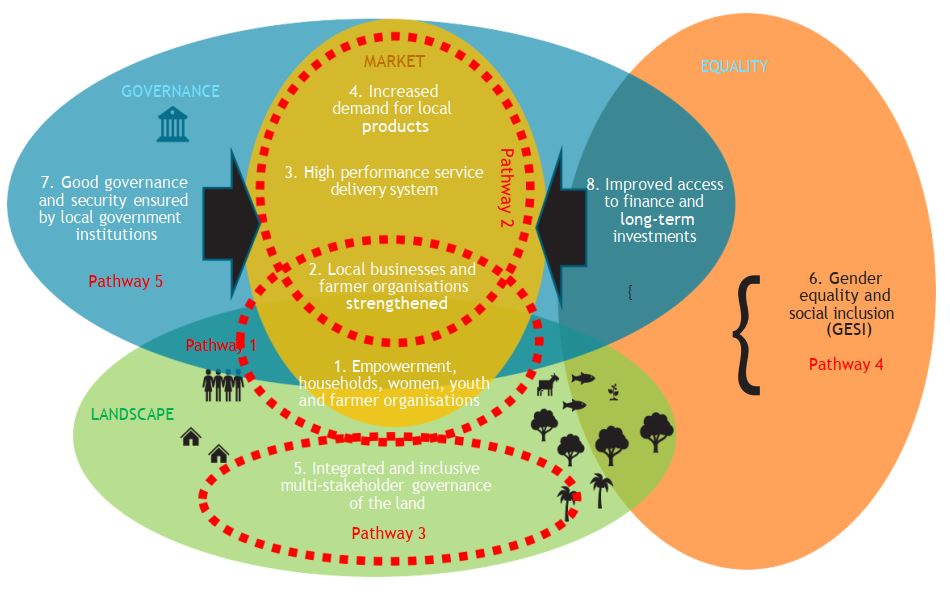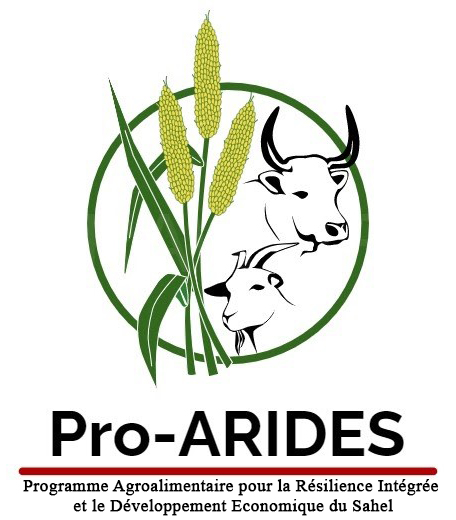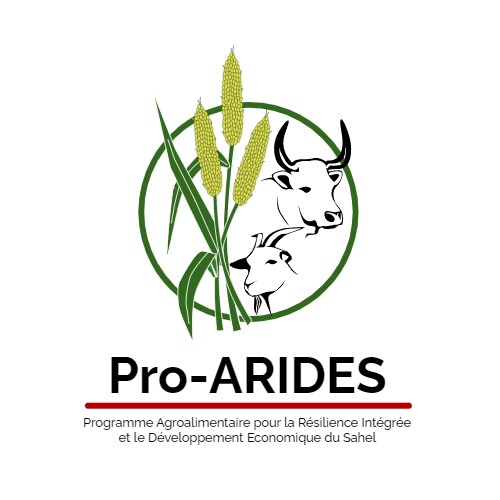Five Pathways
The overall goal of the Pro-ARIDES programme is to contribute to increased resilience, food security and incomes of farmer and (agro) pastoralist households through effective, decentralised institutions and organisations, for improved service provision, natural resource and land management and local economic development.

Pathway 1
Improved food, farm and herd management for more resilient production systems and better household nutritionThe key outcome area of this pathway is to achieve increased sustainable, diversified production and improved nutrition of households through secured food production, sustainable intensification and diversification. It targets both semi-subsistence and market-oriented farmer and pastoralist households, as well as cooperatives and household individuals with a particular emphasis on women and youth.
Key Result Areas
- Established supply and demand for tailored climate- and labour-smart technologies/practices and inputs.
- Improved access to publicprivate financing of farm/ herd management and agrinutrition services.
- Established availability of farm/herd management and nutrition extension services by local public and private service providers and effective management by farmer organisations.
- Increased household and farmer organisations’awareness of the benefits of healthy diets and participatory decisionmaking.
Pathway 2
Increased business, service and employment opportunities and market linkages generating more economic valueThe key outcome area of this pathway is to achieve increased economic resilience and assets of households and businesses through diversified income sources, increased investment capacity and improved business performance. It primarily targets farmers, pastoralists, cooperatives, SMEs, service providers, financiers, traders and business clusters, while emphasising the involvement of young women and men in particular.
Key Result Areas
- Semi-subsistence farmers and pastoralists, women and youth linked to offfarm income generation opportunities.
- Established incentives and arrangements for collaboration between market actors.
- Improved business capacity of SMEs and farmer organisations for commercialisation and distribution.
- Development of a service system which involves different service users and different demands, as well as different service providers.
Pathway 3
Sustainable management of land, water and other natural resources through peaceful and collective resource use arrangementsThe key outcome area of this pathway is to achieve improved land tenure and sustainable use of natural resources through empowerment of farmers and pastoralists, improved decision-making and accountability of public/traditional institutions and improved service delivery and management of natural resources by local governments and institutions. It primarily targets farmers and pastoralists households, land and water commissions, customary authorities, public services and agencies for land and water management and collectivités territoriales.
Key Result Areas
- Improved participatory decision-making, planning and implementation cycles for local development by regional and local governments.
- Improved strategic planning, decision-making and restitution, and internal management of farmer/ women/youth organisations.
- Improved competencies of local land management institutions and multi-stakeholder dialogues on natural resource management and on conflict resolution (mediation capacities).
- Relevant stakeholders are represented in local and formal natural resource management structures.
Pathway 4
Gender, youth and inclusiveness for resilient food systems developmentThe key outcome area of this cross cutting pathway is to ensure the inclusion of men and women, as well as youth, elders and other marginalised populations, to achieve sustainable, equitable and resilient natural resource and land management and local economic development. It targets pastoral households and farmers, cooperatives, SMEs, service providers, financiers, traders and business groups, land and water commissions, public services and land and water management agencies, collectivités territoriales (with particular emphasis on young women and men).
Key Result Areas
- Organisation of women and young people as an autonomous ‘collective force’ to influence decisions/ actions in their favour (access to land/factors and means of production, adapted financial products).
- Support for women’s and youth structures for the implementation of their skills in lobbying, management and influence of decisions.
- Capacity building on gender aspects of all public, private and civil organisations.
Pathway 5
Underlying – Strengthening institutions to re-establish social contractThe key outcome area of this underlying pathway is to support regional and local governments (and other local authorities) to create enabling environments for natural resources management, service provision and management of economic infrastructure and to restore and/or establish social contracts among intervention populations. The target audience comprises land and water commissions, public services and land and water management agencies, local and national governments, and financial institutions, among others.
Key Result Areas
- Improved participatory cycles of decision-making, planning and implementation of local development by regional and local governments.
- Effective transfer of skills and resources to municipalities.
- In collaboration with the national government, ensure safety and security.
- Improved access of governments and local communities to decentralised financing mechanisms, including collection of local taxes.
- Provide access to mobile phone payment systems to access available funding.


